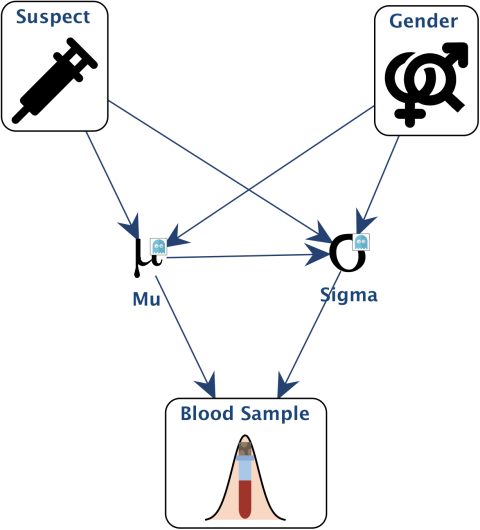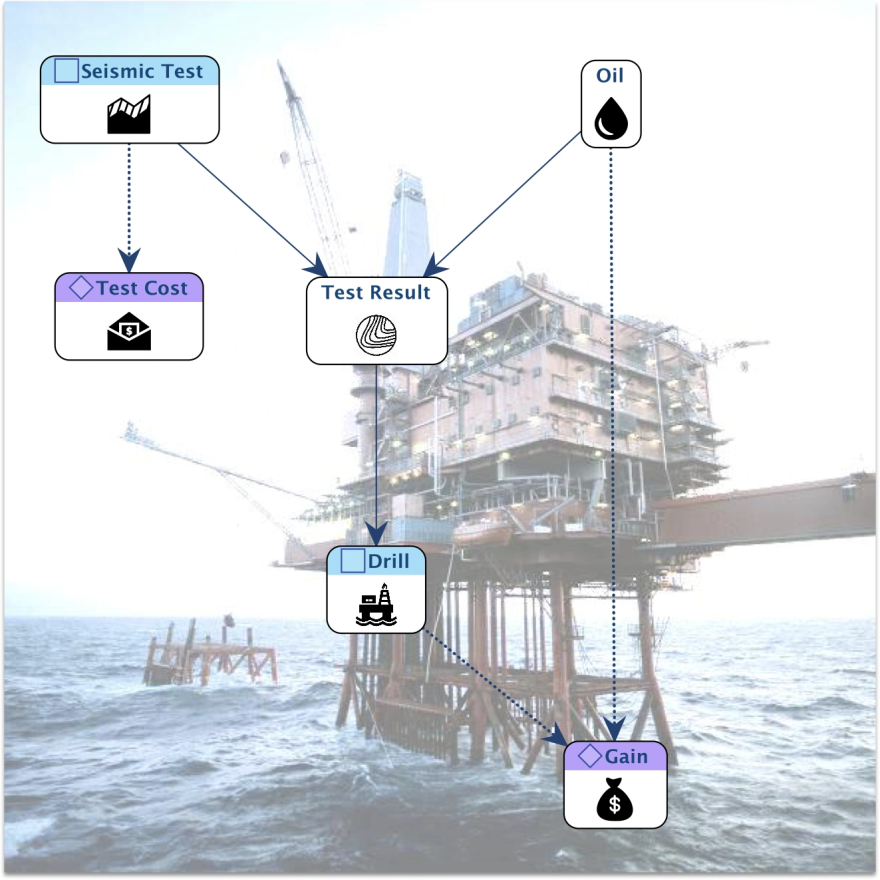Advanced BayesiaLab Course
Overview
- Building on the foundation laid in the Introductory BayesiaLab Course, we introduce the Advanced BayesiaLab Course for those ready to delve even deeper.
- With this immersive experience, you can take your BayesiaLab certification to the next level. While the introductory course provides a comprehensive overview of Bayesian network applications, our advanced curriculum dives into the nuances.
Join the Course
As we finalize the schedule for our new 2025 course program, there’s no need to wait. You can begin the Advanced BayesiaLab Course immediately by enrolling in the recorded version.
Course Program
Day 1
Modeling by Brainstorming
- Expert-Based Modeling via Brainstorming
- Why Expert-Based Modeling?
- Value of Expert-Based Modeling
- Structural Modeling: Bottom-Up and Top-Down Approaches
- Parametric Modeling
- BEKEE: Bayesia Expert Knowledge Elicitation Environment
- Interactive
- Batch
- Segmentation of the Experts
- Creation of Bayesian Belief Networks based on the Elicited Probabilities
- Analysis of the Expert Assessments
- Parameter Sensitivity Analysis
- Exercise: Interactive Session for Probability Elicitation

Influence Diagrams
- Utility Nodes
- Decision Nodes
- Expected Utility
- Automatic Policy Optimization
- Example: Oil Wildcatter
- Exercises

Function Nodes
- Motivation
- Inference Functions
- Formatting
- Function Nodes as Parents
- Exercise

Day 2
Temporal Dimension
- Hidden Markov Chain
- Unfolded Temporal Bayesian Networks
- Dynamic Bayesian Networks
- Temporal Simulations (Scenarios, Temporal Conditional Dependencies, Temporal Monitoring)
- Exact and Approximate Inference
- Unfolding Dynamic Bayesian Networks
- Exercise: Maintenance of a Fluid Distribution System
- Network Temporalization
- Temporal Forecast
- Exercise: Box & Jenkins

Bayesian Updating
- Unrolled Networks
- Compact Networks
- Hyperparameters
- Conditional Dependencies
- Exercise: Bayesian Updating for Equine Anti-Doping

Discretization and Aggregation
- Impact of Discretization
- Requirements for a Good Discretization
- Pre- and Post-Discretization
- Discretization viewed as the Creation of Latent Variables
- Discretization Methods
- Manual by Expertise
- Univariate
- Equal Frequency
- (Normalized) Equal Distance
- Density Approximation
- K-Means
- R2-GenOpt
- Bi-Variate
- Tree
- Perturbed Tree
- Multi-Variate
- Supervised with Random Forest
- Unsupervised with Random Forest
- R2-GenOpt
- LogLoss-GenOpt
- Exercise
- Aggregation Methods for Symbolic Variables
- Manual by Expertise
- Semi-Automatic
- Bi-Variate with Tree
- Exercise

Day 3
Missing Values
- Types of Missingness
- Types of Methods
- Static
- Filtering
- A Priori Replacement
- Entropy-Based and Standard Static Imputation
- Dynamic
- Dynamic Imputation
- Entropy-Based Dynamic Imputation
- Structural Expectation-Maximization
- Approximate Dynamic Imputation with Static Imputation
- Static
- Missing Values Imputation (Standard, Entropy-Based, Maximum Probable Explanation)
- Exercise
- Filtered/Censored/Skipped Values
- Example: Survey Analysis
Loading SVG...
Variable Synthesis
- Manual Synthesis
- Binarization
- Clustering
- K-Means
- Bayesian Clustering
- Hierarchical Bayesian Clustering
- Exercises

Fine-Tuning Models
- Minimum Description Length (MDL) Score
- Parameter Estimation with Trees
- Structural Coefficient
- Stratification
- Smooth Probability Estimation
- Exercise: Car Starts
Analysis
- Confidence/Credible Interval Analysis
- Evidence Analysis
- Joint Probability of Evidence
- Log-Loss
- Information Gain
- Bayes Factor
- Maximum Probable Explanation
- Maximum A Posteriori
- Most Relevant Explanation
- Performance Analysis
- Supervised
- Unsupervised
- Compression
- Multi-Target
- Outlier Detection
- Path Analysis
- Exercises

Optimization
- Genetic Algorithm
- Objective Function
- States/Mean
- Function value
- Maximization/Minimization
- Target Value
- Resources
- Joint Probability/Support
- Search Methods
- Hard Evidence
- Numerical Evidence
- Direct Effects
- Exercise: Marketing Mix Optimization

Contributions
- Direct Effects
- Type I Contribution
- Type II Contribution
- Base Mean
- Normalization
- Stacked Curves
- Synergies

About the Instructor
- Dr. Lionel Jouffe is co-founder and CEO of France-based Bayesia S.A.S. Lionel holds a Ph.D. in Computer Science from the University of Rennes and has worked in Artificial Intelligence since the early 1990s. While working as a Professor/Researcher at ESIEA, Lionel started exploring the potential of Bayesian networks.
- After co-founding Bayesia in 2001, he and his team have been working full-time on the development of BayesiaLab. Since then, BayesiaLab has emerged as the leading software package for knowledge discovery, data mining, and knowledge modeling using Bayesian networks. It enjoys broad acceptance in academic communities, business, and industry.




